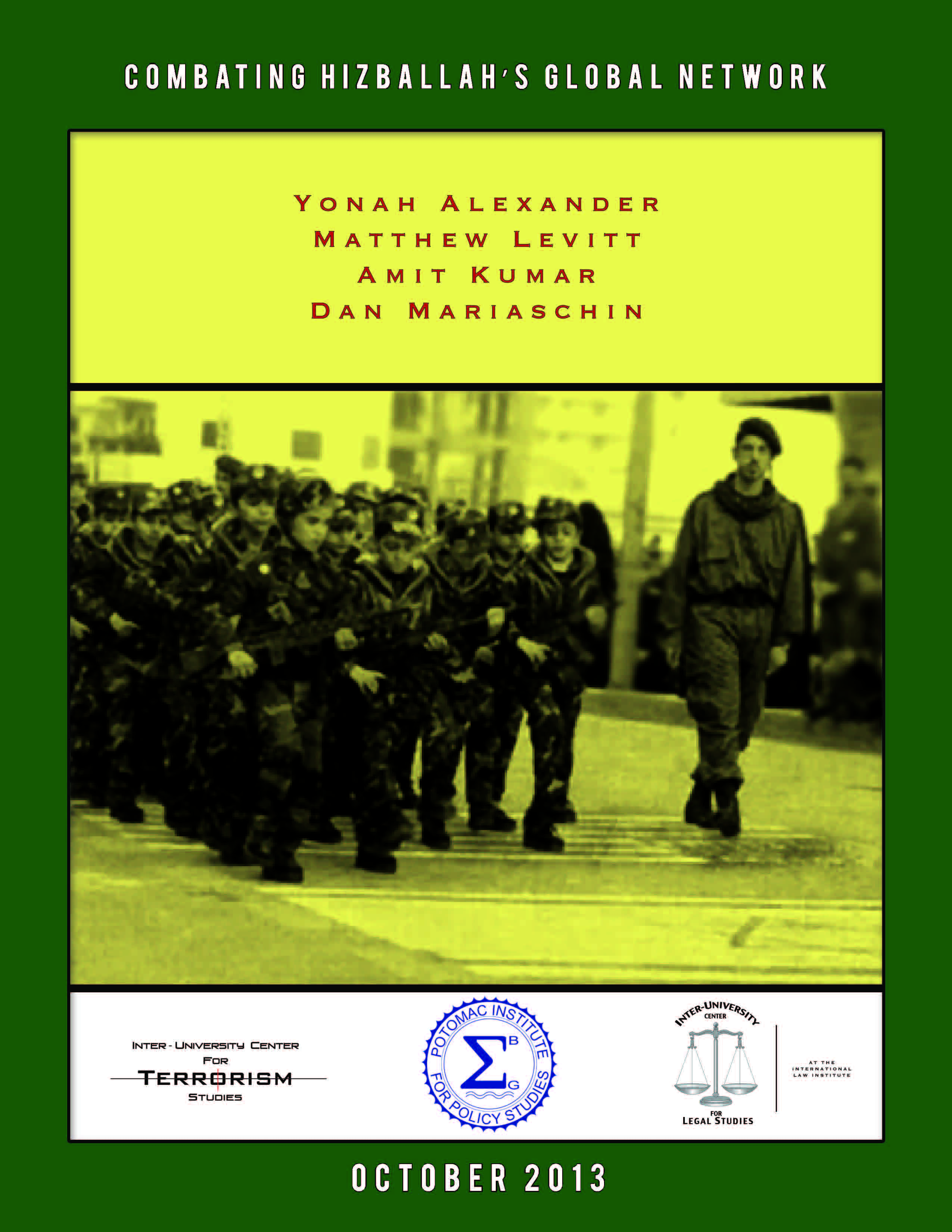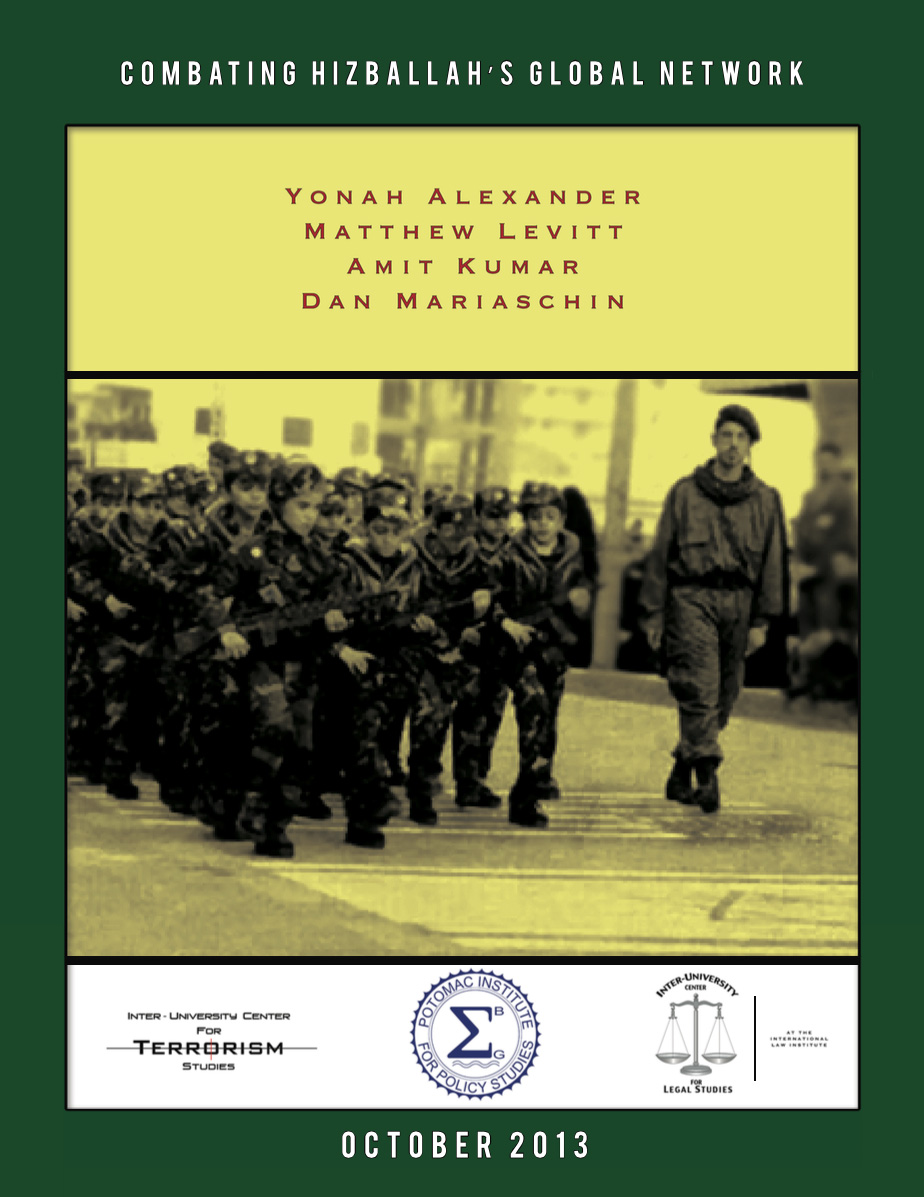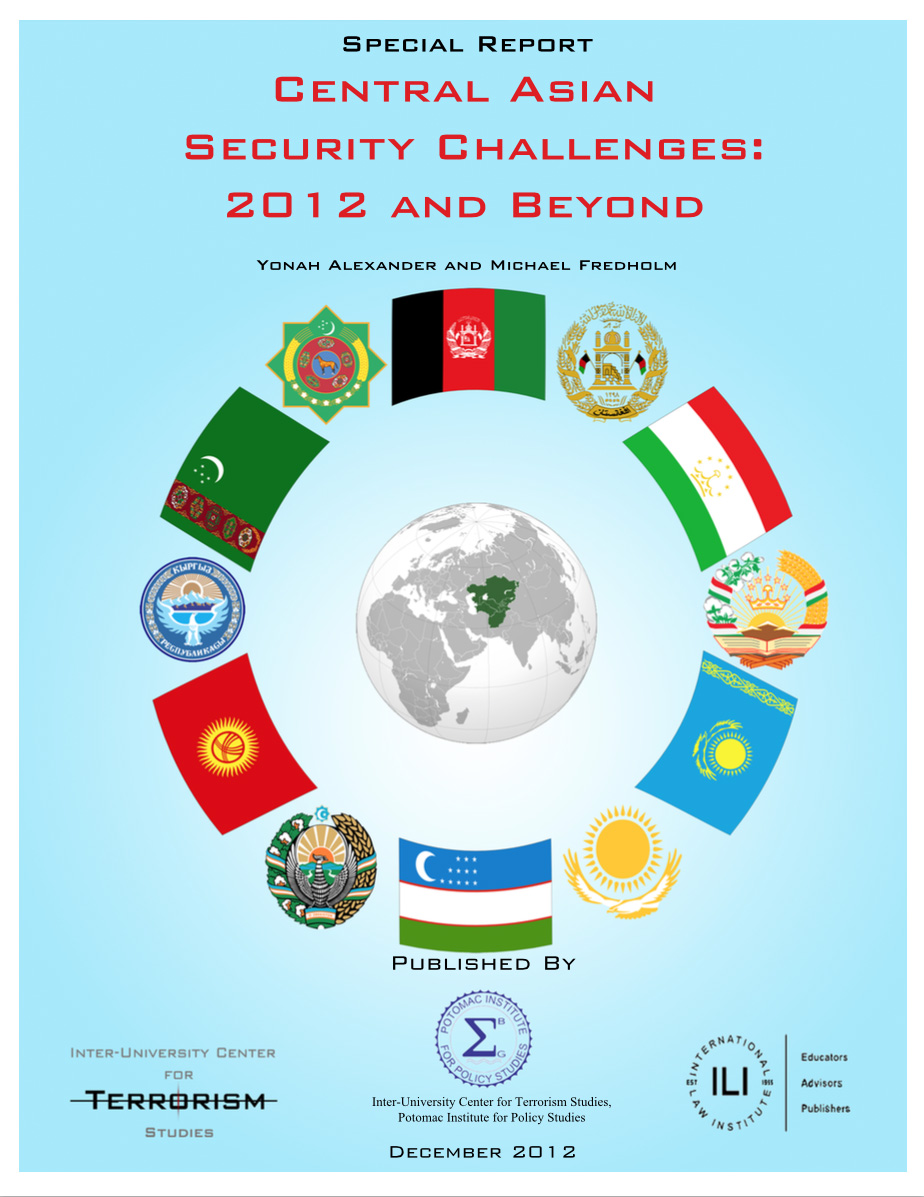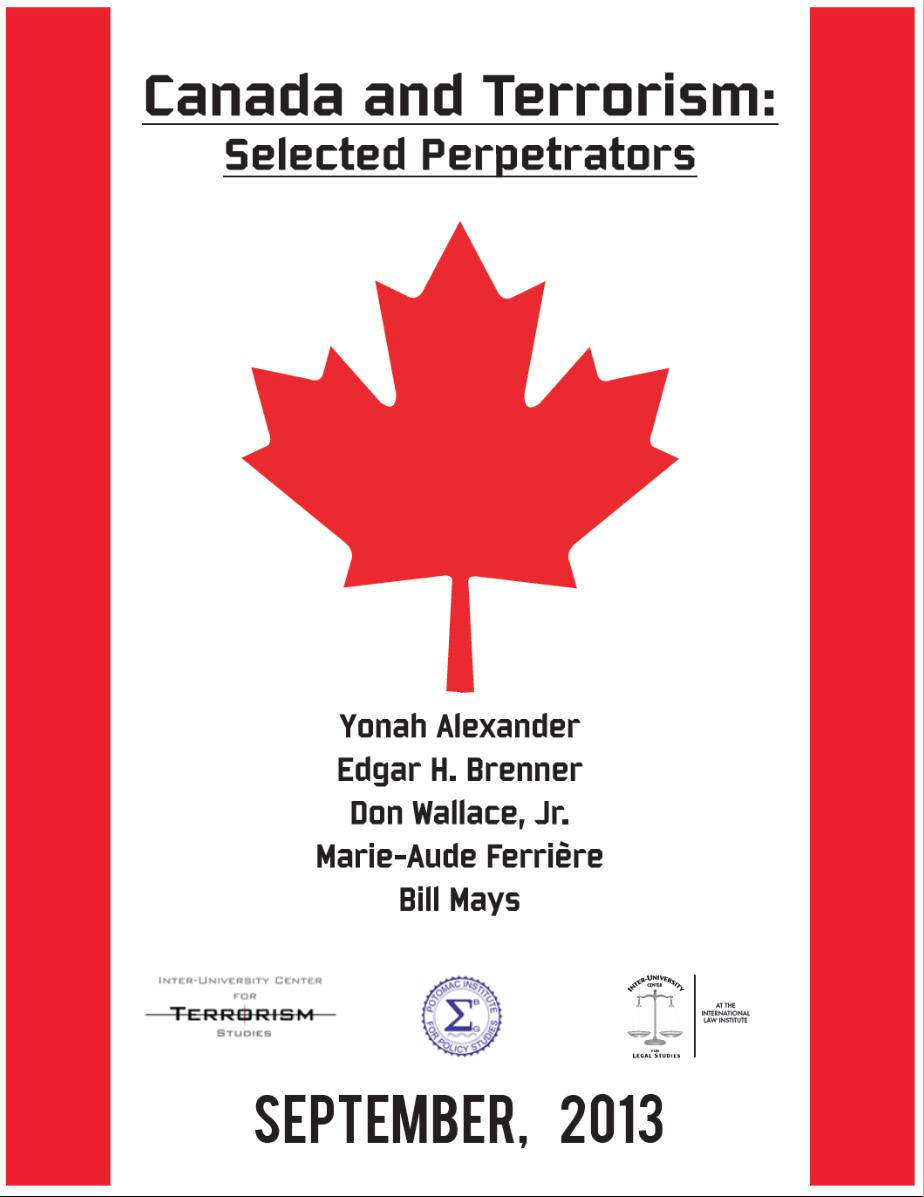Divisions
 In light of the growing debate over the Geneva deal with Iran, the tactical and strategic role of Hizballah, Tehran’s major terrorist proxy in the Middle East and beyond, is becoming more critical for any future diplomatic negotiations.
In light of the growing debate over the Geneva deal with Iran, the tactical and strategic role of Hizballah, Tehran’s major terrorist proxy in the Middle East and beyond, is becoming more critical for any future diplomatic negotiations.
The new timely publication on “Combating Hizballah’s Global Network” provides an updated reality-check on the nature and potential challenges of Iran’s most effective terrorist tool in the coming months and years. It was co-authored by Professor Yonah Alexander (Director, Inter-University Center for Terrorism Studies), Dr. Matthew Levitt (Director, Stein Program on Counterterrorism and Intelligence, Senior Fellow, Washington Institute for Near East Policy), Professor Amit Kumar (Edmund A. Walsh School of Foreign Service, Georgetown), and Dan Mariaschin (Executive Vice President at B'nai B'rith International).
The just released report focuses on Hizballah’s ideology, objectives, organizational structures, major terrorist activities around the world, the Iranian connection, and what the international community, particularly the United States and Europe can do to confront the growing threat to all societies.
This report details the local, national and regional security challenges which the nations of Central Asia currently face. Given the growing international demand for energy and raw materials, this region importance to the international community increases daily. The vast geographical and demographic differences have already been, and will continue to be, a source of contention between state and non-state actors alike for years to come.
Canada's experience with homegrown "foreign affinity" terrorism, namely threats with international connections, are expanding. In 2013, for example, Canadian citizens inspired by Al-Qa’ida's ideology, plotted to bomb the British Columbia legislature in Victoria as well as derail a New York City-Montreal train full with innocent passengers. And it has been reported that Canadian nationals have joined the al-Shabaab terrorist group that attacked a mall in Nairobi (Kenya) and others have participated in operations elsewhere, including Algeria, Yemen, Syria, and Pakistan.
The report on “Canada and Terrorism: Selected Perpetrators” (published in September 2013) provides a context for understanding the challenge of radicalization, extremism and violence in Canada that is rooted in regional, ethnic and political conflicts at home and abroad. Selected profiles of Canadian citizens as well as foreigners residing in Canada personify the ugly face of the terrorist challenges.
The research for this study initially began in 2006 and completed in Spring 2013. A larger study on "Canada and Terrorism: Threats and Responses" is expected to be completed in 2014. This work is undertaken by the Inter-University Center for Terrorism Studies (administered by both the International Center for Terrorism Studies at Potomac Institute for Policy Studies and the Inter-University Center for Legal Studies at the International Law Institute). Professor Edgar H. Brenner, the late co-director of the Inter-University Center for Legal Studies and Professor Yonah Alexander, director of the Inter-University Center for Terrorism Studies are the principal investigators of the study. Academic support is provided by Professor Don Wallace Jr., Chairman, International Law Institute; Bill Mays, International Law Institute; and Marie-Aude Ferrière, Université Paris II Pantheon Assas- France.
For further information, please contact the Inter-University Center for Terrorism Studies at the Potomac Institute for Policy Studies, 901 North Stuart Street Suite 200 Arlington, VA 22203 Tel.: 703-525-0770
Email: This email address is being protected from spambots. You need JavaScript enabled to view it., ICTS@ potomacinstitute.org




